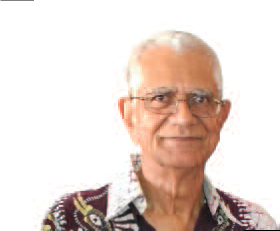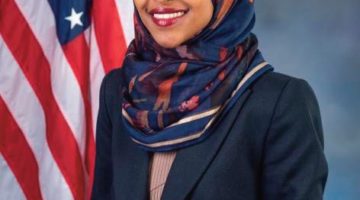An interesting drama is about to play out in Guyana, the former British colony on the northern shoulder of South America, where huge oil discoveries will transform the economy and propel its 750,000 citizens into an era of wealth.
The government of President David Granger, ruling with a thin majority, collapsed Dec. 21 after a member of a junior coalition partner backed a no-confidence vote in the first-ever such political development in the nation which was granted independence on May 26, 1966.
Just around that time, a Venezuelan warship menaced an oil exploration vessel doing work for ExxonMobile, the main oil company searching Guyana’s waters nearly 200 miles off the Essequibo region, escalating a border dispute more than a century old.
Granger himself has been diagnosed with cancer but is well enough to be back at work.
The no-confidence vote could thrust the country back to the 1960s when violent clashes erupted between Guyanese of Indian and African descent seeking power as independence neared. Guyana has enjoyed decades of stability since then, with peaceful transfers of power through the ballot box despite allegations of vote-rigging by the Afro-Guyanese-dominated People’s National Congress (PNC) and widespread corruption by the IndoGuyanese-dominated Peoples Progressive Party (PPP).
The political landscape changed three years ago when coalitions formed around the two parties as the PNC won the elections with the help of a handful of IndoGuyanese politicians and Granger became president, with just a 33-32 majority in the 65-seat parliament. The PNC was buttressed by an alliance of two minor parties whose members included Charrandass Persaud, the parliamentarian who switched sides to back the no-confidence vote. Elections for a new government must be held within 90 days.
“This is a constitutional process which can have favorable outcomes for the nation,” Granger told the people. “There is no cause for alarm and there are no grounds for any form of disorder and we will continue to work to provide good government and deliver public services to the people and to work even more closely with the opposition.”
The PPP has a major grievance going into the elections: the administration’s decision to downsize the sugar industry, which has suffered considerable losses, but is the economic power base of the PPP. The action also was seen by some as racially motivated. Thousands of sugar workers have been laid off, which the parliamentary opposition leader and former president Bharrat Jagdeo has implied influenced Persaud’s vote, Guyanese Online commentator Yvonne Sam reported. A PPP government is almost certain to reverse the decision to minimize the industry and probably subsidize it with petrodollars.
Adding to the uncertainty is Venezuela, whose government, mired in economic and political chaos, is probably hankering for an issue to distract attention from domestic woes. The United Nations has referred the border dispute, in which Venezuela is claiming two-thirds of Guyana’s 83,000 square miles, to the International Court of Justice, but Venezuela has announced it does not recognize the referral.
The United States sided with Guyana against Venezuela’s gunboat diplomacy, as did the Caribbean Community (CARICOM) economic and trading bloc which groups the English-speaking Caribbean. Brazil, pushing for close friendship with Guyana for more than 40 years, is also an ally.
The PNC and the PPP can send a strong signal of a unified nation if they form a coalition government after the upcoming elections. The parties came close to such a coalition in the 1970s during the euphoria that followed the Burnham government’s nationalization of the sugar and bauxite industries – which the then Marxist-oriented PPP had been calling for – but the initiative collapsed after the PNC objected to an article in the PPP’s Mirror newspaper that it deemed a breach of good faith.
Former PPP stalwart Ralph Ramkarran is among commentators who argue that the perennial narrow margins of electoral victory for either party means the electorate wants a national unity government and that multiparty democracy is unsuited for Guyana. It could also be a reflection of the relative political strengths of the PNC and the PPP. But chances of a coalition government of the two main parties to foster unity at home, manage the huge oil windfall and present a united front against Venezuela took an early hit on Sunday when Attorney General Basil Williams called on Speaker Barton Scotland to reverse his acceptance of the no-confidence vote outcome.
Williams claimed the result was invalid because, somehow, the 33-32 margin was invalid and also that Persaud, who also holds Canadian citizenship, should not have been in parliament in the first place – although he has been there for three years supporting the government. Barton had no immediate reaction and Granger and his prime minister Moses Nagamootoo have already accepted the results. Jagdeo, who has asserted that the vote is final, added, ominously, that any effort to overturn it would be resisted.
It will take clear heads in both the PNC and the PPP to keep the country on an even keel at this critical point in its history.
Mohamed Hamaludin is a Guyana-born journalist who worked for several years at The Chronicle in Georgetown in the 1970s and on publications in the Cayman Islands and Turks and Caicos Islands before immigrating to the United States in 1984. He has worked at The Miami Times, the Miami Herald and the South Florida Times, for which he writes a column.













No Comment